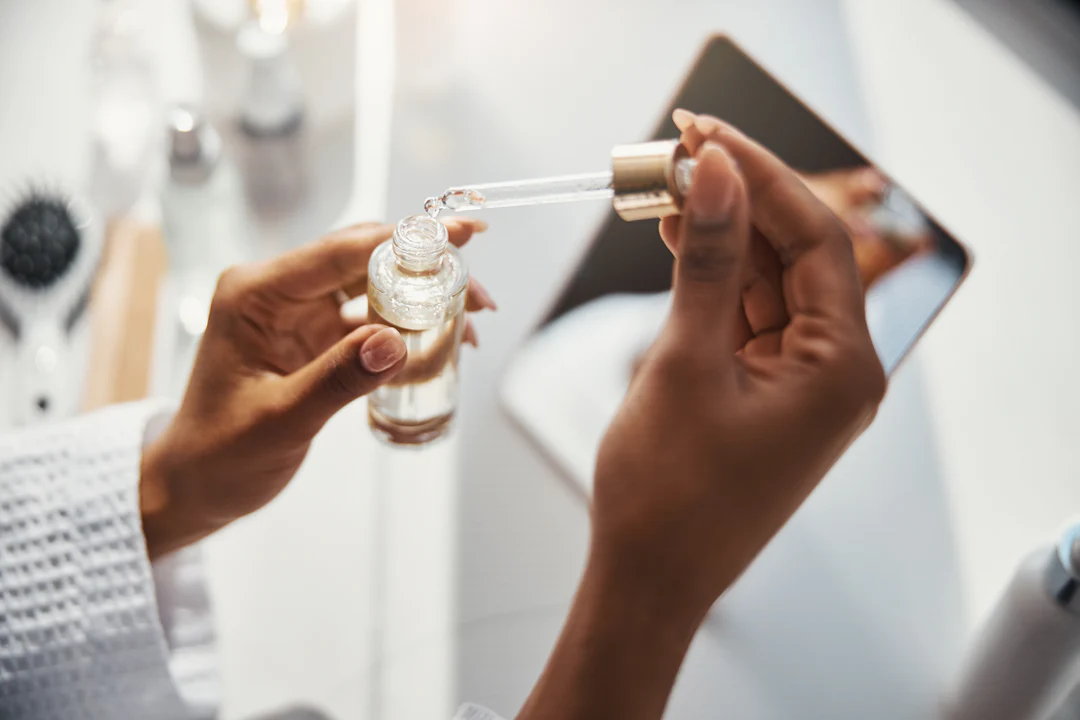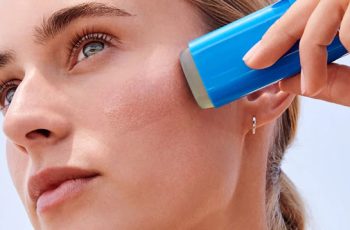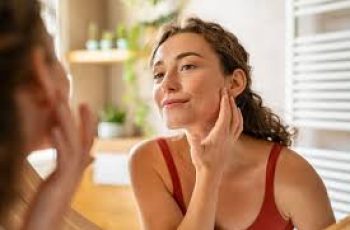
Can Retinol and Alpha-Arbutin be used together?
In today’s blog post, we explore two powerful ingredients that both offer impressive skin benefits. If you’re a skincare fanatic by now, you know that retinol is a difficult ingredient to incorporate into your daily routine. With that in mind, using other ingredients on your skin at the same time can often be a little daunting.
With any luck, today we’ll delve a little deeper and learn more about retinol and alpha-arbutin, and whether using them together will improve your complexion, or if you should avoid them altogether. First, let’s quickly review each ingredient and the benefits you can expect from using them in your daily routine.
What Does Retinol Do for Skin?
As a potent form of vitamin A, retinol can deliver impressive results for the skin, especially when targeting issues with frequent breakouts or premature signs of aging like fine lines and wrinkles. It’s often mistakenly believed that retinol has the same exfoliating properties as chemical peels like glycolic and salicylic acid. Instead of shedding dead skin cells from the surface of the skin, retinol promotes skin cell turnover and brings fresh, new skin cells to the surface of the skin, resulting in a radiant, youthful complexion.
You’ll also find that retinol works beneath the skin’s layers to boost collagen and elastin production, improving skin and reversing signs of sagging.
In addition, retinol combats uneven skin tone, ensuring areas of hyperpigmentation, dark spots, sun damage, and acne scars fade and become less noticeable to the naked eye.
What does alpha arbutin do for the skin?
Alpha-arbutin is known as a powerful brightening ingredient that can help combat the appearance of hyperpigmentation and prevent further damage to the skin’s surface.
Alpha-arbutin from bearberry extract is found in a variety of skincare formulas to regulate melanin production, or skin pigmentation. Serums, lotions, and moisturizers are the most common products that contain alpha-arbutin, often in combination with other active ingredients like vitamin C, kojic acid, and niacinamide. People often think that these ingredients alone are difficult to combine with other powerful active ingredients, but this just goes to show how easy it is to combine alpha-arbutin with other skincare ingredients.
Can retinol and alpha-arbutin be used together?
Yes, absolutely! This may surprise you, considering how effective both ingredients are. There are a few reasons why using retinol and alpha-arbutin together can be effective, primarily because you can easily incorporate alpha-arbutin into your daily routine without having to worry about it causing irritation or reactions on your skin. Another reason is that each ingredient works on different parts of the skin, so they can work without competition.
While these two powerful ingredients are very effective in improving overall skin tone and skin health, it is important to consult a doctor or healthcare professional before applying any new ingredients to your face. Once you have decided which product you want to use, I also recommend doing a 24-hour patch test before applying it directly to your face so you don’t have to worry about it anymore.
What Not to Mix with Retinol?
There are some skincare ingredients that you should avoid when using retinol, such as vitamin C, benzoyl peroxide, and AHA/BHA acids. This is because it is often believed that using retinol with these exfoliating ingredients can be too much for the skin, causing it to lose important oils it needs for a healthy protective barrier, thus weakening the damage caused by free radicals.
However, this does not mean that you should not use the above ingredients at all. Instead, choose to apply at different times of the day or on alternate days to avoid applying on the same day as a retinol product. When you use active ingredients in this way, you can reap the benefits while avoiding any negative side effects. If you want to learn more about what not to mix with retinol, read our dedicated blog post on the subject.
Can I use niacinamide with alpha-arbutin and retinol?
Yes, you can. Using all three ingredients ensures that your complexion remains healthy and balanced, and the common drying side effects of retinol are offset by the skin hydration benefits of niacinamide. The best way to use niacinamide with alpha-arbutin and retinol is to make sure you use them at the best times of the day. Example:
You can use niacinamide twice a day, morning and night, on your face. The hydrating properties of the active ingredient draw water into the skin and lock it in place.
This combats the drying effects of retinol and strengthens the skin barrier.
You can also use alpha arbutin twice daily. However, make sure to allow enough time before using retinol in the evening.
Lastly, retinol should only be used at night as it is sun-sensitive and becomes unusable when exposed to UV radiation.
If you want to learn more about using niacinamide with alpha-arbutin, check out this blog post which goes into more detail about how these ingredients work together.
Does alpha arbutin help with hyperpigmentation?
Yes, if anything, it is touted as one of the most effective ingredients for fighting hyperpigmentation. Alpha-arbutin has the ability to regulate the production of melanin in the skin, which can help target all signs of pigmentation, from dark spots, age spots, sun damage, to areas of hyperpigmentation. Over time, you will notice that the pigment fades and your overall skin tone appears more even. The advantage of alpha-arbutin as a skin lightening ingredient is that it does not make the skin more sensitive to sun exposure, which means it is a great product for year-round use. I still recommend wearing an SPF 30 or higher sunscreen daily to protect your skin from potential or further sun damage.
I hope that today we’ve answered some of your questions about using retinol and alpha-arbutin together. Don’t forget to follow us on Instagram and reach me via direct message if you have any additional questions.


